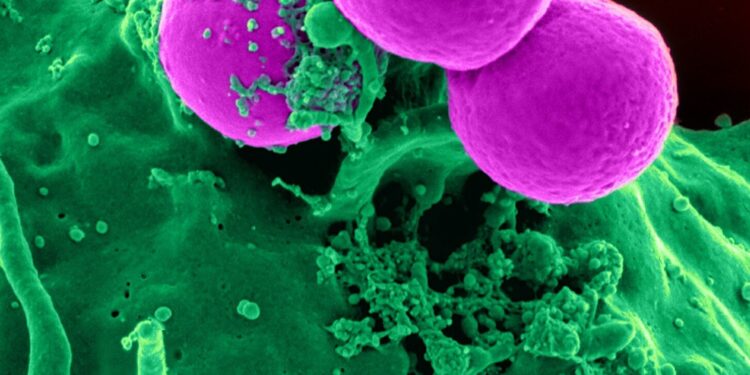Credit: CC0 Public domain
Researchers at Jiao Tong University School of Medicine in Shanghai, China, have found that shutting down part of the innate immune system increases anti-tumor activity.
In an article titled “Non-canonical MAVS signaling restricts dendritic cell-induced antitumor immunity by inhibiting IL-12,” published in Scientific immunologyThe team details how exploring the role of mitochondrial antiviral signaling in tumor immunity uncovered unexpected insights into the relationship with immune responses and potential therapeutic implications.
Mitochondrial antiviral signaling (MAVS) proteins are part of the innate immune system encoded by the nuclear genome found primarily on the outer membrane of mitochondria. Considered a first line of defense against viral infections, they are rapidly produced upon viral recognition and rapidly reduced when a virus is cleared from the system.
In contrast to its role in antiviral responses, the study reveals that MAVS signaling can promote tumor growth and hinder antitumor treatment.
Deletion experiments showed that MAVS deficiency in dendritic cells explicitly promotes antitumor CD8+ T cell responses without impact on other immune cell populations. These results suggest that inhibition of MAVS signaling in dendritic cells could enhance antitumor immunity and improve current therapeutic approaches.
Loss of MAVS increased interleukin-12 expression by tumor microenvironment dendritic cells and draining lymph nodes. The loss also appears to affect the transit of tumor antigens to draining lymph nodes rather than antigen presentation.
When combined with radiotherapy, suppression of MAVS led to synergistic tumor inhibition. This suggests that unsuppressed AVMs may contribute to resistance to radiotherapy by impairing the maintenance of effector-like CD8s.+ T cells after radiotherapy.
The results suggest that disruption of the MAVS pathway in dendritic cells could be a promising therapeutic strategy to improve anti-tumor immune responses, particularly in combination with immunotherapies such as radiotherapy.
This discovery could also have interesting implications in the field of non-cancer therapies. Severe cases of COVID-19 are associated with higher CD8 counts+ T cell recruitment and search for additional pathways for CD8+ Activation of T cells in a COVID-19 scenario could be beneficial.
More information:
Lingling Wu et al, Non-canonical MAVS signaling restricts dendritic cell-induced antitumor immunity by inhibiting IL-12, Scientific immunology (2023). DOI: 10.1126/sciimmunol.adf4919
© 2023 Science X Network
Quote: Suppressing part of the innate immune system to improve cancer treatment (December 5, 2023) retrieved December 5, 2023 from
This document is subject to copyright. Apart from fair use for private study or research purposes, no part may be reproduced without written permission. The content is provided for information only.



